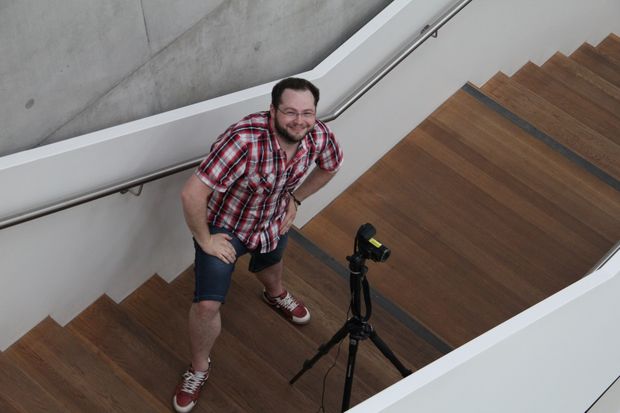JKU researchers have “settled” a dispute between Aristotle and Galileo. The reason: To make physics fun for school students.

A “quarrel” among geniuses: Aristotle (born 384 BC) and Galileo Galilei (born 1564) had different ideas when it came to the physics of falling objects. Galileo made his position clear in a thought experiment. However, this pioneer of science made a mistake, as researchers at the Johannes Kepler University Linz have now demonstrated using simple experiments. Researchers consider this an exciting and fun approach to teach physics to school students – and are re-writing the physics textbooks.
The ancient Greeks preferred thinking over experimentation. Although masters of thought, they sometimes missed the mark. Aristotle, for example, believed heavy objects would fall faster than lighter objects. Galileo’s physics book Discorsi e Dimostrazioni Matematiche intorno a due nuove scienze (1638) contradicted the ancient master. A mental experiment led him to conclude that “all objects fall at the same speed”. Aristotle’s thesis was thus outdated. The mental experiment Galileo applied to ‘correct’ Aristotle’s misconception is still in school text books today.
Mag. DI Josef Stadlbauer (Dept. of Soft Matter Physics, JKU) explained, “I learned from Prof. Bauer that thinking outside of the box is particularly important.” Together with department head Siegfried Bauer and Lukas Kehrer, they recreated Galileo’s mental experiment, showing that Galileo’s argument was inconclusive. Mag. Stadlbauer remarked, “In the end, both of them were a little right but not completely right. After all, air is something.”
The experiment’s background is not about falling objects per se – the physics behind that has been long known in science. “We just wanted to use simple, age-appropriate experiments to show how scientific discourse works and encourage school students to think critically because there’s often more to a story than what is in the textbook.”
Student-Friendly Experiment
The experiment: when dropped, different sized paper balls fall at different speeds due to air resistance. This would point more in the direction of Aristotle’s theory. Remove air resistance (or reduce it by crumpling the paper ball), they fall (almost) equally as fast. This would have made Galileo happy.
The experiment has now been published in the American Journal of Physics, a flagship journal in the didactics of physics, and should also be included in school text books. Mag. Lukas Kehrer, winner of the 2018 Macke Award, approached the topic for his Diploma degree thesis as part of his studies in Teacher Education. When asked how he aims to teach physics to students of tomorrow, he replied, “Modern didactics in physics include using anecdotes, finding the fun in asking questions and getting answers, as well as conducting experiments.”








